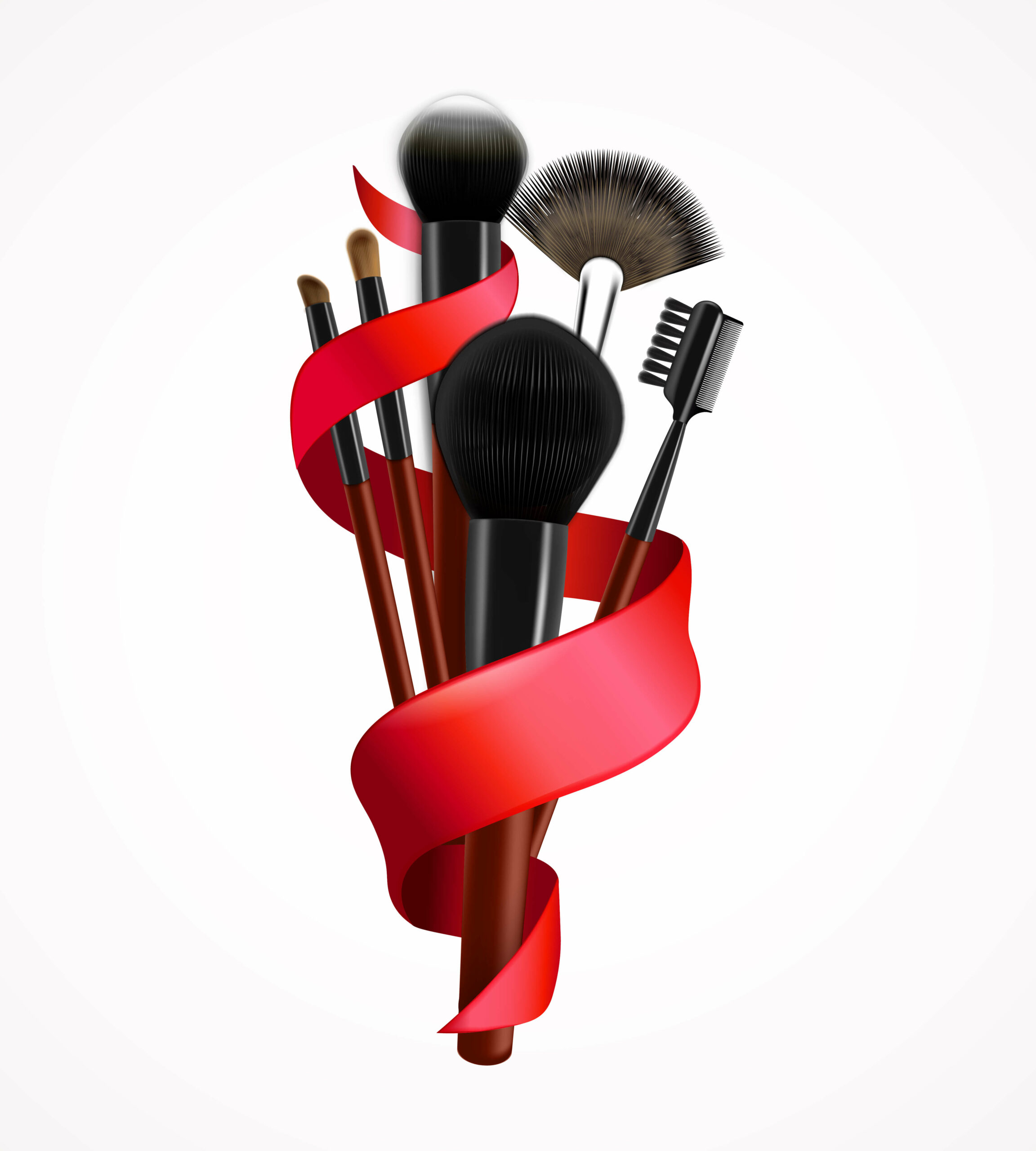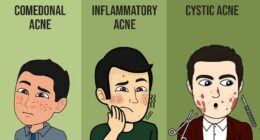Dermatology focuses on medical conditions of the skin, hair, and nails, while cosmetology primarily deals with enhancing appearance through beauty treatments.
Welcome to our comprehensive guide that explores the key differences between dermatology and cosmetology. As individuals seeking skincare solutions, it’s important to understand these two fields and their distinct approaches to skin health and beauty enhancement.
Dermatology and cosmetology are two specialized branches within the skincare industry. While they both focus on the skin, their methodologies, areas of expertise, and treatment approaches differ significantly. let’s delve into these dissimilarities to gain a better understanding of these professions.
What is an Esthetician?
Estheticians are skilled professionals who specialize in improving the appearance and health of their clients’ skin. They possess a unique blend of scientific knowledge and practical expertise in skincare, allowing them to provide effective advice and treatments. Estheticians work in various settings, such as salons, spas, and even medical offices, catering to clients’ diverse skincare needs.
To become an esthetician, individuals must complete comprehensive training programs, typically lasting around six months. The specific number of training hours required may vary depending on the state. During their training, estheticians learn various techniques and gain hands-on experience in skincare analysis and treatment.
Estheticians play a vital role in helping clients achieve their skincare goals. They possess qualities such as care, empathy, and effective communication skills, enabling them to connect with their clients on a personal level. By analyzing clients’ specific skincare needs, estheticians can tailor treatments to address concerns and provide services like facials, exfoliation, waxing, and more.
An esthetician’s expertise extends beyond the surface level. They understand the intricacies of different skin types, conditions, and the impact of various skincare products and treatments. By staying up to date with the latest advancements in skincare, estheticians ensure they can offer the most effective and innovative solutions to their clients.
Estheticians transform clients’ skincare routines and leave a lasting impact on their confidence and self-esteem. Whether it’s mitigating skin concerns or simply providing a pampering experience, estheticians are dedicated to enhancing the natural beauty of their clients.
So, if you’re seeking professional skincare advice or looking for personalized skincare treatments, an esthetician is the expert you can rely on.
The Role of an Esthetician
An esthetician’s role encompasses a wide array of skincare services and tasks, including:
- Performing skincare analysis to understand clients’ specific needs.
- Providing personalized skincare advice to improve clients’ skin health.
- Performing facial treatments to enhance skin tone and texture.
- Conducting exfoliation procedures for smoother, more radiant skin.
- Performing waxing services to remove unwanted hair.
- Assessing skin conditions and recommending suitable skincare products.
- Performing various body treatments for relaxation and rejuvenation.
- Assisting clients in maintaining proper skincare routines.
Estheticians possess the knowledge, skills, and passion to address clients’ diverse skincare needs. Whether it’s tailoring a skincare regimen, providing advice on product selection, or performing specialized treatments, estheticians are dedicated to helping their clients achieve healthier, more beautiful skin.
What is a Cosmetologist?

Cosmetologists are skilled professionals who specialize in offering a wide range of beauty treatments and enhancements. They have the expertise to transform their clients’ appearance through various techniques related to hair, nails, and makeup. With their artistic skills and knowledge, cosmetologists work in spas and salons, providing services that cater to the unique needs and desires of their clients.
Beauty Treatments and Enhancements
As cosmetologists, these professionals have a comprehensive understanding of beauty treatments and enhancements. They possess the skills to style hair, provide hair coloring services, and offer nail care treatments. Additionally, cosmetologists are well-versed in makeup application techniques to enhance their clients’ features, whether it’s for special occasions or everyday beauty routines.
Their expertise in beauty treatments allows them to provide personalized services tailored to individual preferences. From creating stunning hairstyles to designing beautiful nail art, cosmetologists have the ability to enhance their clients’ appearance and boost their self-confidence.
Qualifications and Training
To pursue a career as a cosmetologist, individuals must obtain the necessary qualifications through proper training. The training typically takes around 40 weeks, allowing aspiring cosmetologists to learn the essential skills required for their profession.
During their training, cosmetologists gain knowledge and practice in a variety of areas, including hair cutting and styling, makeup application, and nail care techniques. They also learn about salon sanitation and hygiene practices to ensure a safe and clean environment for their clients.
Moreover, cosmetologists have the option to specialize in specific areas of beauty treatments, such as hairdressing, esthetics, or nail technology. By specializing, they can further enhance their skills and offer specialized services to clients seeking expertise in those specific areas.
A Rewarding Career in the Beauty Industry
A career as a cosmetologist can be highly rewarding for individuals who have a passion for beauty and enjoy working with people. By providing beauty treatments and enhancements, cosmetologists have the opportunity to positively impact their clients’ lives by boosting their self-esteem and helping them feel more confident and beautiful.
Furthermore, working in salons and spas allows cosmetologists to collaborate with a diverse range of clients, understanding their unique preferences and personal styles. This interaction not only fosters creativity but also provides cosmetologists with the opportunity to build long-lasting relationships with their clients.
Overall, the field of cosmetology offers a fulfilling career option for individuals who are passionate about beauty treatments, possess artistic skills, and enjoy working in a salon environment.
| Services Provided by Cosmetologists: | Qualifications |
|---|---|
| Hairstyling | Cosmetology training (40 weeks) |
| Hair coloring | Specialization in hairdressing |
| Nail care | Specialization in nail technology |
| Makeup application | Cosmetology training (40 weeks) |
What is a Dermatologist?

Dermatologists are medical doctors who specialize in the diagnosis and treatment of skin, hair, and nail conditions. They are highly trained professionals dedicated to providing comprehensive care for their patients’ skin health. Dermatologists play a crucial role in treating various skin conditions and performing both medical and cosmetic procedures to promote healthy and beautiful skin.
As skin doctors, dermatologists possess extensive knowledge of the structure and function of the skin, enabling them to diagnose and treat a wide range of skin conditions. Whether it’s acne, eczema, psoriasis, or skin cancer, dermatologists have the expertise to provide accurate diagnoses and develop personalized treatment plans.
One of the primary roles of a dermatologist is to offer medical skincare advice. They provide guidance on skincare routines, recommend appropriate products, and educate patients about preventive measures to maintain optimal skin health. Dermatologists understand that healthy skin is not solely about aesthetics, but also a reflection of overall well-being.
Aside from medical skincare advice, dermatologists perform various procedures to address both medical and cosmetic concerns. They may conduct skin biopsies, remove skin tags, perform skin cancer surgeries, or administer treatments like Botox or dermal fillers for cosmetic purposes. Dermatologists work closely with other skincare professionals, including estheticians, to provide comprehensive care that combines medical and cosmetic approaches.
Dermatologist Qualifications
Becoming a dermatologist requires significant dedication and education. After completing a bachelor’s degree, aspiring dermatologists must attend medical school, which typically takes four years. Upon earning their medical degree, they proceed to a dermatology residency program, which usually lasts three to four years. During residency, dermatologists receive specialized training in diagnosing and treating various skin conditions and performing dermatologic procedures.
After completing residency, dermatologists may choose to pursue further specialization through fellowships, focusing on areas like surgical dermatology, pediatric dermatology, or cosmetic dermatology. These additional training programs allow dermatologists to further refine their expertise in specific aspects of dermatology.
All these qualifications equip dermatologists with the skills and knowledge needed to provide comprehensive care for their patients’ skin health. Whether it’s addressing medical conditions or delivering cosmetic treatments, dermatologists are uniquely positioned to offer expertise and ensure the best possible outcomes for their patients.
Skin Conditions and Treatments
Dermatologists are equipped to diagnose and treat a wide range of skin conditions, utilizing both non-invasive treatments and surgical procedures as needed. Some common skin conditions that dermatologists address include:
- Acne
- Eczema
- Psoriasis
- Rosacea
- Skin infections
- Skin cancer
- Dermatitis
- And many more
Depending on the specific condition, dermatologists may recommend different treatment approaches. These can include:
- Topical medications
- Oral medications
- Laser therapy
- Cryotherapy
- Surgical excision
- Chemical peels
- Dermal fillers
- And other interventions
The treatment plan is tailored to each individual’s needs, considering factors such as the severity of the condition, the patient’s medical history, and their ultimate goals for their skin health.
| Quality of a Dermatologist | Benefits |
|---|---|
| Expertise and knowledge in skin conditions and treatments | Accurate diagnoses and effective treatment plans |
| Ability to perform various dermatologic procedures | Comprehensive care for both medical and cosmetic concerns |
| Collaboration with other skincare professionals | Integrated approach to patient care |
| Advanced education and qualifications | Confidence in a dermatologist’s skills and expertise |
Esthetician vs. Cosmetologist
While both estheticians and cosmetologists work in the field of beauty and skincare, there are significant differences between the two roles. Estheticians focus primarily on improving the cosmetic appearance of clients’ skin, offering services like skincare analysis and facials. They require qualifications specific to esthetics, including training in skincare techniques and products. On the other hand, cosmetologists have a broader scope of practice, working with hair, nails, and makeup in addition to skincare. They undergo training in various areas of beauty treatments and must meet specific cosmetology qualifications.
Let’s take a closer look at the qualifications required for both estheticians and cosmetologists:
| Qualifications | Esthetician | Cosmetologist |
|---|---|---|
| Training Duration | Approximately 6 months | Approximately 40 weeks |
| Scope of Practice | Primarily skincare | Skincare, hair, nails, makeup |
| Specific Skills | Skincare techniques, facials, skincare analysis | Hair styling, makeup application, nail care |
| Qualifications | Esthetician License | Cosmetology License |
As you can see from the table, estheticians undergo a shorter training period focused specifically on skincare. They develop expertise in skincare techniques, facials, and skincare analysis, allowing them to provide specialized skincare services to their clients. In contrast, cosmetologists receive more extensive training that covers a wide range of beauty treatments, including hair styling, makeup application, and nail care.
Ultimately, the choice between becoming an esthetician or a cosmetologist depends on your specific interests and career goals. If you have a passion for skincare and want to specialize in skincare analysis and facials, becoming an esthetician may be the right path for you. On the other hand, if you enjoy working with hair, nails, and makeup in addition to skincare, pursuing a career as a cosmetologist could be a better fit.
It’s important to note that both estheticians and cosmetologists play valuable roles in the beauty and skincare industry. Whether you choose to focus on skincare or expand your skillset to include other areas of beauty, the field offers exciting opportunities for individuals with a passion for making people look and feel their best.
Dermatology Procedures vs. Cosmetic Procedures
Dermatology procedures and cosmetic procedures are two distinct categories within the skincare field. While both aim to improve the appearance and health of the skin, they differ in their focus and objectives.
Dermatology Procedures
In dermatology, procedures primarily revolve around diagnosing and treating medical skin conditions. These conditions can range from common issues like acne to more severe conditions like skin cancer.
Examples of dermatology procedures include:
- Biopsies for skin cancer detection
- Surgical excision of cancerous tissue
- Chemical peels
- Moles and wart removal
- Laser surgery for scar revision
Cosmetic Procedures
Cosmetic procedures, on the other hand, are focused on enhancing the aesthetic appearance of the skin. These procedures aim to address cosmetic concerns and improve overall skin texture and tone.
Examples of cosmetic procedures include:
- Botox injections to reduce wrinkles
- Dermal fillers for facial volume restoration
- Laser hair removal
- Microdermabrasion
- Chemical peels for skin rejuvenation
While some procedures may overlap between dermatology and cosmetic skincare, dermatologists primarily specialize in medical skincare procedures, while cosmetic procedures are typically performed by specific cosmetic skincare professionals such as plastic surgeons or medical estheticians.
It’s important to consult with a skincare professional to determine the most appropriate procedures based on your specific needs and goals.
| Dermatology Procedures | Cosmetic Procedures |
|---|---|
| Focus on diagnosing and treating medical skin conditions | Focus on enhancing the aesthetic appearance of the skin |
| May include surgeries, biopsies, and chemical peels | May include Botox injections, dermal fillers, and laser hair removal |
| Typically performed by dermatologists | Performed by cosmetic skincare professionals such as plastic surgeons or medical estheticians |
Skin Health vs. Beauty Enhancement
The main distinction between dermatology and cosmetology lies in their focus on skin health and beauty enhancement, respectively. Dermatology primarily focuses on maintaining and improving skin health, offering treatments for a wide range of skin conditions, from acne to skin cancer. Dermatologists provide medical skincare advice and perform procedures to address these conditions.
Cosmetology, on the other hand, primarily focuses on beauty treatments and enhancements to enhance clients’ appearance. This includes services such as makeup, hairstyling, and nail care. Cosmetic skincare professionals aim to enhance beauty rather than specifically addressing medical skin conditions.
While dermatology and cosmetology both play important roles in the skincare industry, they approach skin health and beauty enhancement from different perspectives. Dermatology focuses on diagnosing and treating skin conditions, whereas cosmetology focuses on providing aesthetic skin enhancements.
It is important to note that even though they have different focuses, dermatology and cosmetology often work together to provide holistic skincare solutions. Dermatologists may refer patients to cosmetic skincare professionals for beauty treatments that complement their medical skincare routines.
Benefits of Dermatology
- Diagnosis and treatment of various skin conditions
- Expertise in medical skincare advice
- Performance of procedures for medical and cosmetic purposes
Benefits of Cosmetology
- Wide range of beauty treatments and enhancements
- Expertise in makeup, hairstyling, and nail care
- Ability to enhance clients’ appearance
Ultimately, whether you prioritize skin health or beauty enhancement depends on your personal preferences and skincare goals. Some individuals may seek medical treatments for specific skin conditions, while others may prioritize beauty treatments to enhance their overall appearance.
In the next section, we will explore the different types of skincare advice provided by dermatologists and cosmetic skincare professionals.
Medical Skincare Advice vs. Beauty Advice
When it comes to skincare advice, there are differences between the guidance provided by dermatologists and cosmetic skincare professionals. Dermatologists offer medical skincare advice based on their deep understanding of skin conditions and treatments. They provide consultations to diagnose and recommend appropriate medical treatments for specific skin issues.
Cosmetic skincare professionals, on the other hand, offer beauty advice and consultations focused on enhancing clients’ appearance. Their recommendations may include skincare products and treatments aimed at enhancing beauty rather than addressing specific medical conditions.
| Dermatologist | Cosmetic Skincare Professional | |
|---|---|---|
| Focus | Medical skincare advice | Beauty advice |
| Consultations | Diagnose and recommend medical treatments | Enhance appearance with skincare products and treatments |
| Area of Expertise | Deep understanding of skin conditions and treatments | Knowledge of beauty products and techniques |
Understanding these differences can help individuals determine whether they require a skincare consultation with a dermatologist or an aesthetic consultation with a cosmetic skincare professional. Depending on their needs and goals, individuals can seek medical skincare advice for skin conditions or beauty advice for aesthetic enhancements.
It’s important to note that both dermatologists and cosmetic skincare professionals play valuable roles in the skincare industry, offering their expertise to help individuals achieve healthy and beautiful skin.
Conclusion
When it comes to choosing a career in the skincare industry, the decision between dermatology and cosmetology ultimately depends on individual interests and career goals. Dermatology offers exciting opportunities for those passionate about medical skincare and the treatment of specific skin conditions. Dermatologists undergo extensive education and training to become medical doctors specialized in dermatology, allowing them to provide comprehensive care for patients. Their expertise lies in diagnosing and treating various skin concerns, from acne to more complex conditions like skin cancer.
On the other hand, cosmetology is a great choice for individuals interested in the beauty industry and providing beauty treatments and enhancements. Cosmetologists can specialize in various areas, such as hairstyling, makeup artistry, or nail care. They have the opportunity to work with clients on a more personal level, helping them enhance their appearance and boost their confidence through creative and skillful techniques.
Both dermatology and cosmetology have their own unique requirements and offer rewarding careers in the skincare and beauty industry. Whether one chooses to pursue a path in medical skincare or focus on aesthetic beauty treatments, both fields allow professionals to make a positive impact on their clients’ lives and contribute to their overall well-being. The choice ultimately comes down to personal preferences, strengths, and the specific career trajectory one wishes to pursue in the ever-evolving world of skincare and beauty.
FAQ
What is the difference between dermatology and cosmetology?
Dermatology focuses on diagnosing and treating skin conditions, while cosmetology involves beauty treatments and enhancements.
What is an esthetician?
An esthetician is a skincare professional who provides skincare advice and treatments, specializing in improving the appearance of the skin.
What is a cosmetologist?
A cosmetologist is a beauty professional who offers a variety of beauty treatments and enhancements, including hair, nails, and makeup services.
What is a dermatologist?
A dermatologist is a medical doctor who specializes in the diagnosis and treatment of skin, hair, and nail conditions.
What are the qualifications required to become an esthetician?
To become an esthetician, one must complete training that typically takes around six months, although the required hours may vary by state.
What are the qualifications required to become a cosmetologist?
Training to become a cosmetologist typically takes around 40 weeks, although it may take longer for those who choose to specialize in specific areas.
What are the qualifications required to become a dermatologist?
Becoming a dermatologist requires around 12 years of post-secondary education, including a bachelor’s degree, medical school, and residency.
What are the differences between an esthetician and a cosmetologist?
Estheticians focus primarily on improving the cosmetic appearance of clients’ skin, while cosmetologists have a broader scope of practice, working with hair, nails, and makeup in addition to skincare.
What are the differences between dermatology procedures and cosmetic procedures?
Dermatology procedures focus on diagnosing and treating medical skin conditions, while cosmetic procedures aim to enhance the aesthetic appearance of the skin.
What is the difference between skin health and beauty enhancement?
Dermatology primarily focuses on maintaining and improving skin health, while cosmetology primarily focuses on beauty treatments and enhancements.
What is the difference between medical skincare advice and beauty advice?
Dermatologists offer medical skincare advice based on their deep understanding of skin conditions and treatments, while cosmetic skincare professionals offer beauty advice focused on enhancing clients’ appearance.
How do I choose between a career in dermatology or cosmetology?
Choosing between a career in dermatology or cosmetology depends on individual interests and career goals. Dermatology offers opportunities for those interested in medical skincare, while cosmetology offers opportunities for those interested in the beauty industry and providing beauty treatments and enhancements.
Source Links
- https://www.cortiva.edu/post/what-s-the-difference-between-a-cosmetologist-and-an-esthetician
- https://skcdermatology.com/what-is-the-difference-between-a-dermatologist-and-a-cosmetic-dermatologist/
- http://entrance-exam.net/difference-between-cosmetology-and-dermatology/
Image Credits
Featured Image By – Freepik
Image 1 By – macrovector on Freepik
Image 2 By – Freepik








